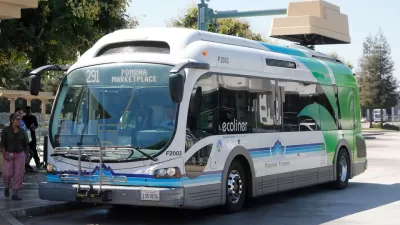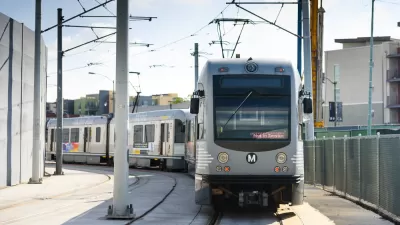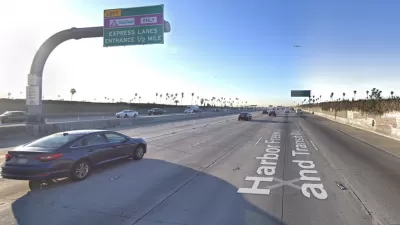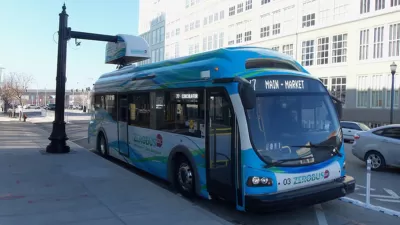Electrification is at a tipping point in California, expanding into the heavy-duty sector with the buy-in of transit agencies across the state.

In an interview with The Planning Report, Proterra CEO Ryan Popple declares that the market for zero-emission electric transit buses has "come of age"—especially with Los Angeles Metro's recent commitment to fully electric fleets by 2030.
Proterra is an electric bus manufacturer with contracts around the country, at least 15 of which are in California. Popple explains:
"Most California transit agencies expect that, in the long term, they will run zero-emission vehicles. At this point, the majority use EVs or have them on the way, and at least eight cities have a 50 or 100 percent EV mandate by 2025. The laggards—the fleets that are moving slowly—run the risk of coming under regulatory pressure from the California Air Resources Board."
California has been moving ahead on light-duty electric cars for some time: $800 million worth of charging infrastructure is in store thanks to Volkswagen's "dieselgate" settlement, and Governor Brown just signed 12 bills meant to push the state toward 1.5 million zero-emission electric cars on the road by 2025.
But how well electrification would spread to the heavy-duty vehicle sector—like trucks, tractors, and buses—had been an open question. Proterra's answer is its latest model of transit bus, which recently broke the record to become the world's longest-range electric vehicle of any type.
Now, Popple says:
"It's no longer about whether an electric can do the job of a diesel. Now the question is whether diesel and natural gas buses can keep up with electric. And at this point, I don't think they can."
In The Planning Report, Popple goes on to explain why transit buses are good candidates for electrification after all, why he believes utility companies should push for transportation electrification, and more.
FULL STORY: California's Electric Bus Market Going Mainstream

Alabama: Trump Terminates Settlements for Black Communities Harmed By Raw Sewage
Trump deemed the landmark civil rights agreement “illegal DEI and environmental justice policy.”

Study: Maui’s Plan to Convert Vacation Rentals to Long-Term Housing Could Cause Nearly $1 Billion Economic Loss
The plan would reduce visitor accommodation by 25% resulting in 1,900 jobs lost.

Planetizen Federal Action Tracker
A weekly monitor of how Trump’s orders and actions are impacting planners and planning in America.

Wind Energy on the Rise Despite Federal Policy Reversal
The Trump administration is revoking federal support for renewable energy, but demand for new projects continues unabated.

Passengers Flock to Caltrain After Electrification
The new electric trains are running faster and more reliably, leading to strong ridership growth on the Bay Area rail system.

Texas Churches Rally Behind ‘Yes in God’s Back Yard’ Legislation
Religious leaders want the state to reduce zoning regulations to streamline leasing church-owned land to housing developers.
Urban Design for Planners 1: Software Tools
This six-course series explores essential urban design concepts using open source software and equips planners with the tools they need to participate fully in the urban design process.
Planning for Universal Design
Learn the tools for implementing Universal Design in planning regulations.
Caltrans
Smith Gee Studio
Institute for Housing and Urban Development Studies (IHS)
City of Grandview
Harvard GSD Executive Education
Toledo-Lucas County Plan Commissions
Salt Lake City
NYU Wagner Graduate School of Public Service





























